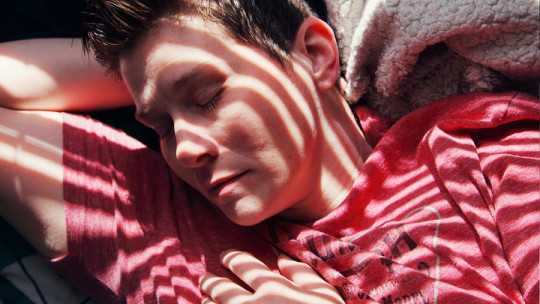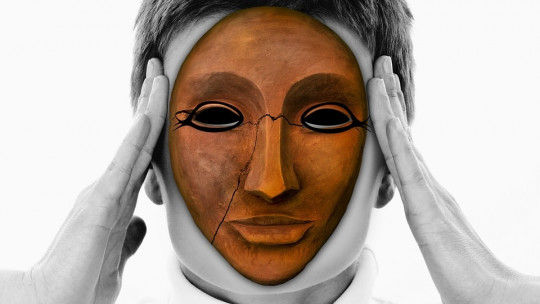At some point we have all felt lacking energy. With no desire for anything except lying down and resting, exhausted. We feel weak and almost unable to move, needing a break.
This feeling of fatigue will probably pass after a while, after a period of rest. However, due to multiple causes, sometimes this sensation refuses to subside and lasts over time. We would be facing a case of asthenia.
Defining the concept asthenia
We call asthenia a condition in which a reduction in the level of energy and strength in the body, also decreasing motivation and producing a feeling of exhaustion both physically and mentally.
Although pathologies such as spring asthenia are known, asthenia is generally classified as a symptom, as it is an indicator of a deeper process than the cause, regardless of its etiology.
This alteration may be accompanied by difficulties with attention and concentration, sleep and memory alteration, loss of appetite and sexual desire, bradykinesia or slowness in movement, dizziness, emotional lability, depressive symptoms and even depending on its cause it is possible to experience alterations. such as fever and hallucinations. In some cases it can cause loss of consciousness, changes in vision or difficulty speaking, in which case medical services should be sought immediately, as it could be a symptom of a serious organic disorder.
This exhaustion produces a series of complications in the life of the person who suffers from it. affecting their life in different vital areas by reducing the amount of behaviors performed and their mood.
Etiology or causes of asthenia
As we have mentioned, Asthenia is usually classified as a symptom of a medical process or mental state there being multiple possible causes for its appearance. At a general level, it is observed that together with asthenia there tends to be a decrease or alteration in the immune system, so this is considered a possible explanation for the symptoms.
On a medical level, it can be caused by the presence of allergies and autoimmune problems (such as in the case of spring asthenia or in some cases of patients with HIV). Its appearance is also frequent in infectious processes, due to the lack of sufficient nutrients in the body as in the case of anemia, as well as in neurological disorders, tumor processes and even as a reaction or side effect of some medications such as benzodiazepines and tranquilizers or antihistamines). Metabolic disorders such as diabetes mellitus can also cause episodes of asthenia.
In more than half of the cases, asthenia is due to purely psychological causes.
Known then as psychogenic or functional asthenia, It is common for this to appear in the presence of continued stress such as that suffered by subjects with burnout or during exam preparation times in the case of students. In these cases the asthenic episode worsens in the mornings, generally appearing along with problems falling asleep or maintaining sleep. Likewise, it also appears when there is a dysregulation of circadian rhythms such as that produced by jet-lag. Finally, this symptom appears in a large number of disorders that produce emotional exhaustion, being frequently visible in cases of depression, anxiety disorders, obsessive-compulsive disorder and post-traumatic stress disorders.
At a more normative level, the appearance of asthenia is also common due to aging, pregnancy or the existence of a too sedentary lifestyle.
Brain mechanisms involved
Although the specific causes of asthenia may be multiple and varied, as we have seen, At the brain level, the presence of alterations in the system that governs wakefulness is discussed. : the reticular activating system or RAS, located in the brain stem.
These alterations are based on the non-activation of this center, which causes a feeling of tiredness both physically and mentally. In this aspect, the existence of a problem arises at the level of norepinephrine production in the locus coeruleus or its transmission.
Treatment
Asthenia is treated at a general level based on the resolution of the specific cause that caused it. there is generally no specific treatment for this problem.
However, physical exercise is very useful, which, remember, helps reduce stress and relax, in addition to generating endorphins endogenously.
Likewise, cognitive behavioral therapy is successful in the treatment of asthenia, especially if it occurs chronically, helping to de-dramatize the present problems, improving cognitions and behaviors that may influence the appearance of asthenia and presenting techniques and planning activities of so that the patient is able to better manage stress and function optimally on a daily basis.
At a pharmacological level, Antidepressants or anxiolytics have sometimes been used, as well as multivitamin preparations. in order to increase the energy level. A medication that is also sometimes prescribed as an antiasthenic drug is sulbutiamine, especially for sexual symptoms.
Basic difference between asthenia and normal fatigue
Asthenia is often confused with a normal fatigue process. The main difference between asthenia and fatigue is that while fatigue usually reverts with a period of rest, in the case of asthenia it remains and even worsens, and can become chronic, known as chronic fatigue syndrome if the problem persists for more than six months producing a deterioration in the patient’s life at a work, social or personal level of more than 50% compared to their base level.









